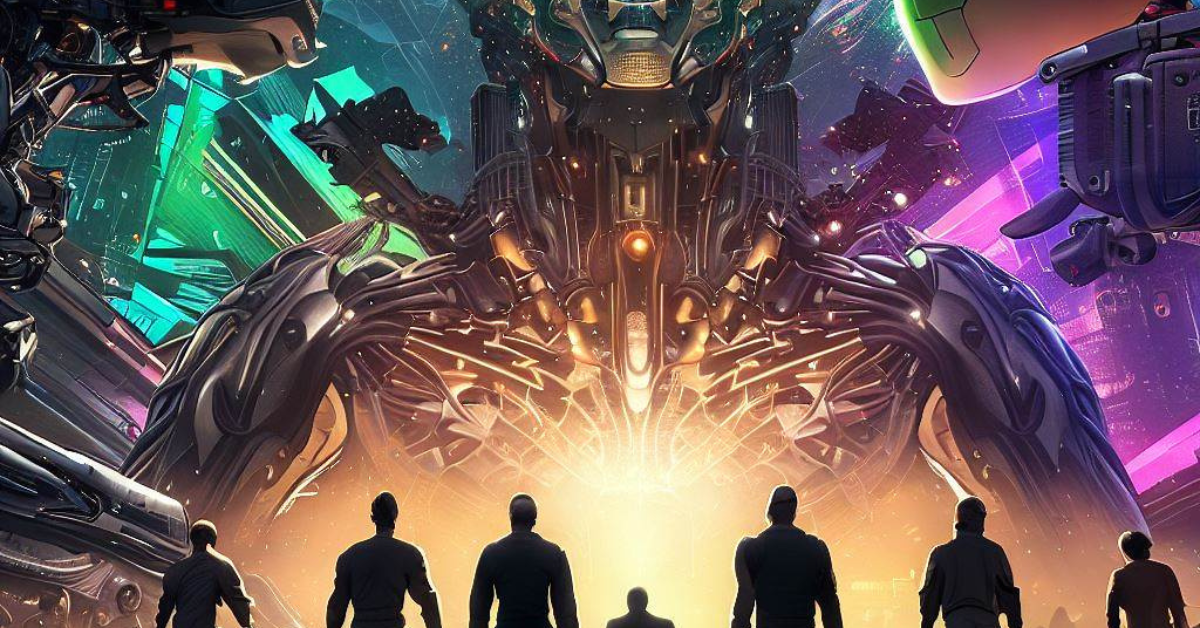Game Dev Revolution – Generative AI Takes Center Stage for Unity and NVIDIA

Game development is on the cusp of a revolutionary transformation, driven by the integration of generative AI tools from industry leaders like Unity and NVIDIA. These companies are at the forefront of leveraging the power of generative AI to reshape the game development landscape. Unity’s AI marketplace, in conjunction with the Sentis and Muse platforms, offers game developers a wide range of solutions that harness the potential of generative AI in creating immersive gaming experiences.
Enhancing NPCs and Game Assets:
Generative AI brings a new level of realism to non-playing characters (NPCs) in games. With generative AI solutions, developers can create NPCs with advanced behavioral patterns, making them more lifelike and interactive. Moreover, generative AI streamlines the creation of game assets by automating the process. Developers can now generate textures, animations, and even entire 3D worlds with ease, saving valuable time and resources.
Integrating Generative AI Across the Workflow:
Unity’s AI marketplace, Sentis, and Muse platforms cover various aspects of game development. The Muse platform, powered by AI, assists developers in real-time 3D creation for digital twins. It also introduces Muse Chat, a chatbot that can generate textures and animate characters based on prompts. On the other hand, the Sentis platform seamlessly integrates neural networks into the game engine, allowing developers to run AI models at the edge and integrate them into different elements of their games.
The Three Pillars of Unity’s AI Marketplace:
Unity’s AI marketplace encompasses three key categories: asset creation, NPC platforms, and voice generators. Asset creation tools automate the generation of game assets, significantly reducing the time and effort required. NPC platforms offer solutions for creating intelligent and interactive NPCs, enhancing the overall gameplay experience. Voice generators, powered by generative AI, produce realistic voiceovers for characters, further immersing players in the gaming world.
Visit Here: ChatGPT Prompts
Industry-wide Adoption of Generative AI:
The adoption of generative AI in the game development industry is gaining momentum. According to a survey conducted by a16z games, a division of Andreessen Horowitz, 87% of independent game studios are already utilizing generative AI in their projects. What’s more, an astounding 99% of these studios plan to further integrate generative AI into their future endeavors. This widespread adoption reflects the industry’s recognition of the transformative potential of generative AI in optimizing production timelines and creating high-quality games within limited budgets.
The Future of In-house AI Models:
Game studios are increasingly investing in in-house generative AI models to personalize their game development processes. Studios like Ubisoft and Roblox are already developing their AI tools, such as Ubisoft’s ‘Ghostwriter’ for NPC dialogue and Roblox’s efforts to leverage generative AI for enhancing user-generated content. This trend of creating customized AI models aligns with the industry’s growing emphasis on vertically optimized tooling for game development.
NVIDIA And Microsoft Join Forces To Bring Generative AI To Windows 11 PCs And Workstations
Conclusion:
The integration of generative AI tools by industry leaders like Unity and NVIDIA is driving a revolution in game development. With the extensive possibilities that generative AI offers, the future of game development holds groundbreaking advancements and immersive experiences for players. The convergence of specialized AI tools and the support of established players in the industry propel generative AI toward widespread adoption by game studios.
As the potential of generative AI is fully realized, developers and players can expect a paradigm shift in the way games are created and experienced, ushering in a new era of innovation and creativity.

